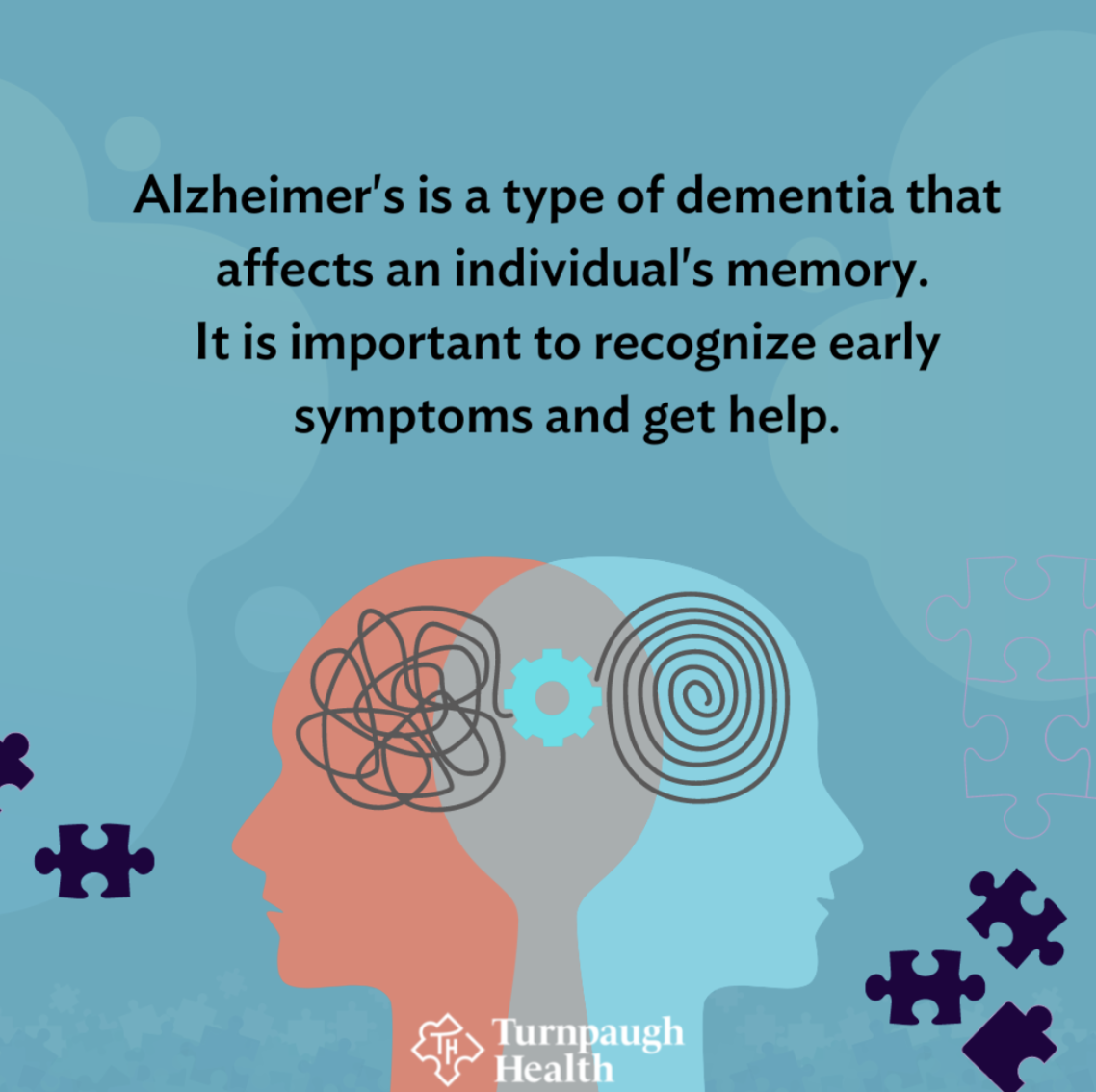
As of 2020, 5.8 million Americans are living with Alzheimer’s disease and this number is projected to almost triple to 14 million people by the year 2060. In addition to memory problems, other symptoms may include difficulties completing familiar tasks at work or home, decrease in good judgment, misplacing things and changes in mood, personality and/or behavior.¹
So how does functional medicine fit into the diagnosis of Alzheimer’s Disease? As a branch of medicine that looks at the root cause of disease, functional medicine explores the causes of the diagnosis. ReCODE 2.0, also known as the Bredesen protocol is a program that various providers at Turnpaugh Health & Wellness Center have completed that helps practitioners differentiate between the various types of Alzheimer’s Disease. Based on the protocol, Alzheimer’s Disease has been divided into various types:
Type 1-Inflammatory. Driven by inflammation and may increase molecules that produce amyloid
Type 2-Atrophic. Driven by suboptimal levels of nutrients, trophic factors and hormones.
Type 1.5-Glycotoxic. Driven by high blood sugar or fasting insulin.
Type 3-Toxic. Driven by exposure to toxins that includes mercury, mold, toluene, lyme disease etc.
Type 4-Vascular. Driven by cardiovascular disease.
Type 5-Traumatic- Driven by head trauma.
Centers for Disease Control and Prevention. (2020, October 26). What is Alzheimer’s disease? Centers for Disease Control and Prevention. Retrieved September 15, 2022, from https://www.cdc.gov/aging/aginginfo/alzheimers.htm#:~:text=Alzheimer’s%20disease%20is%20the%20most,thought%2C%20memory%2C%20and%20language.
